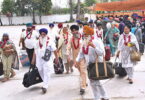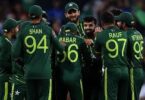Martin Ivens
The British monarchy chalked up an unexpected triumph against the U.K.’s tabloid press this month. Ironically, it took an outsider to do it, one who’s quit the royal family in high dudgeon over its controlling ways and upped sticks to Los Angeles.
Whether justice was truly served in the case of the Duchess of Sussex versus Fleet Street remains open to question. Libel and privacy trials are always a lottery in England — and their implications reach far beyond the wounded pride of newspaper editors because they reestablish the dividing lines between privacy and the freedom to report on the powerful.
Meghan Markle, who is married to Prince Harry, is jubilant nonetheless about her High Court success against the Mail On Sunday, a mid-market newspaper, over the publication of a private handwritten letter to her estranged father. She claimed a victory over press prurience.
But this wasn’t a story of hacks snooping on a famous figure: It was her father, Thomas Markle, who gave the letter to the paper. The Duchess said that publication infringed on her privacy, while the newspaper argued that her father was entitled to release the letter, which it claimed showed signs of being written with a view to a wider audience.
By handing down a “summary judgment” in her favor, London Judge Mark Warby spared Markle and her father from making embarrassing court appearances. The judge ruled that the newspaper had clearly breached her right to privacy and her copyright as author of the letter. Unless the Mail on Sunday appeals, it will have to pay legal costs and damages.
The judgment reflects the ongoing recalibration of privacy laws and newspaper freedoms in Britain. But in a broader sense it was a victory for the U.S. celebrity system, which ruthlessly controls media coverage. Prince Harry, who blames the press for the death of his mother, Princess Diana, has cheered his wife on throughout — the continuation of a long rift with Britain’s rough-and-tumble tabloids.
The Duchess prefers to talk to the media on her own terms, signing deals with Netflix Inc. along with Harry. Her next interview will be given to Oprah Winfrey, long-reining queen of U.S. television, who was also a guest at the Sussexes’ marriage in St George’s Chapel, Windsor. Why worry about impertinent hacks when you can connect with your adoring fans via handpicked favorites, often with the questions vetted in advance by public-relations experts?
The British popular media is aggrieved to have been outmaneuvered by a minor American star catapulted to major league status by association with the royals. And some U.K. critics of the tabloids are delighted by this: One scoffed in the Guardian newspaper that journalists thought it was “the couple’s job to provide competitively priced content from which newspapers could profit much more handsomely than themselves.”
Markle has certainly challenged the idea of anyone else exploiting her content. She subsequently released news of her latest pregnancy alongside a romantic black-and-white photograph of the Duke and Duchess in an idyllic setting. The Daily Star’s page-one headline caught the ambivalence of the occasion: “Publicity-shy woman tells 7.67 billion people, I’m pregnant.”
As a former newspaper editor, I believe there are more serious issues at stake here, although my own personal experience of Lord Justice Warby has been wholly to the good. He found for my old newspaper, the Sunday Times, in a libel case brought by a former Conservative Party leadership contender who, we reported, had been abusing his parliamentary position for profit. His judgments, legal colleagues confirm, are impeccably argued.
In this case Warby is right that Markle and her husband deserve the same right to privacy as any ordinary citizen, despite their fame. Few daughters would relish their intimate correspondence being splashed all over the news. But context matters and Markle’s use of language in the letter raised enough questions about its purpose to be aired at trial.
This judgment makes me uneasy on another point. Juries have become virtually unheard of in U.K. media trials after recent legal changes, and yet they used to bring their own standards of fairness into play. A layperson’ s view should carry some weight in a legal system built on common law. Sometimes juries would look beyond the letter of the law when the wider context of a case exonerated the defendant or diminished the gravity of the offence. And with a jury present, the evidence would be publicly tested. In a summary judgment there’s no opportunity for even a judge without a jury to hear the full facts in open court.
Hearing of evidence in this case would at least have interrogated the Mail on Sunday’s claims that Kensington Palace officials might have helped draft Markle’s letter and that she knew it was likely to become public. Four royal employees were ready to testify. A version of the contents of the letter had been briefed by some of Markle’s friends to People magazine in the U.S. The Mail on Sunday argued that her father had a right to correct the record.
The paper didn’t help its case by publishing the letter’s contents in full. It is the Duchess’s copyright and it would have been prudent to have trimmed it down to the salient points that corrected the version put out by her camp. But should her version of the facts go wholly unchallenged as this ruling effectively suggests?
Yes, royals, celebrities and politicians should be afforded the same privacy rights as the rest of us. But the risk is that the case of the Duchess’s letter will end up tilting the balance to the rich and powerful over the right to disclose information. It may seem small beer, but that is how restrictions creep in — first in trivial matters , then in larger ones.
Bloomberg






